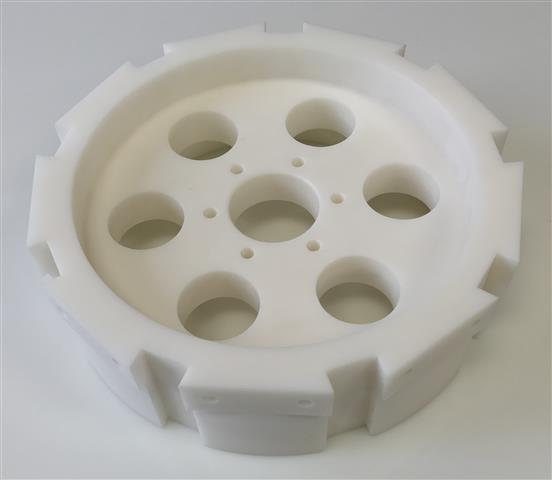
HDPE
High-density polyethylene, better known as HDPE, is a thermoplastic resin used to manufacture everything from plastic milk jugs to composite and synthetic lumber to implants for facial reconstructive surgery.
HDPE is produced by stringing together ethylene molecules, which are most often derived from natural gas. It does not contain any BPA, phthalates, heavy metals, or allergens, and, as it produces no harmful fumes or outgassing and will not leach harmful chemicals into soil or water, it is among the most environmentally stable plastics. Often labeled as “#2 Plastic,” HDPE is easy to recycle.
Advantages of HDPE
- Lightweight but very strong
- Excellent impact and chemical resistance
- Long lasting and weather resistant
- Highly resistant to mold, moisture, salt spray, and other environmental factors
Properties of HDPE
HDPE’s density can range from 0.93 to 0.97 g/cm3. Because its chemical makeup has minimal branching, HDPE has stronger intermolecular forces and higher tensile strength than chemically- and mechanically-similar LDPE (low-density polyethylene) materials. HDPE is also harder than LDPE, and can withstand higher operating temperatures (as high as 248°F/120°C).
HDPE is known for its highly favorable strength-to-weight ratio. Combined with its high chemical, impact, and weather resistance, it is commonly used to replace heavier materials with no loss of performance or reduced lifespan.
Contact Delmar Company for Precision Machined HDPE Parts
Delmar Company are the plastic machining experts. We use CNC milling, CNC routing, and CNC turning processes to produce custom machined HDPE parts and components that match our customers’ unique designs.
Request a quote today or contact us to discuss your project.


